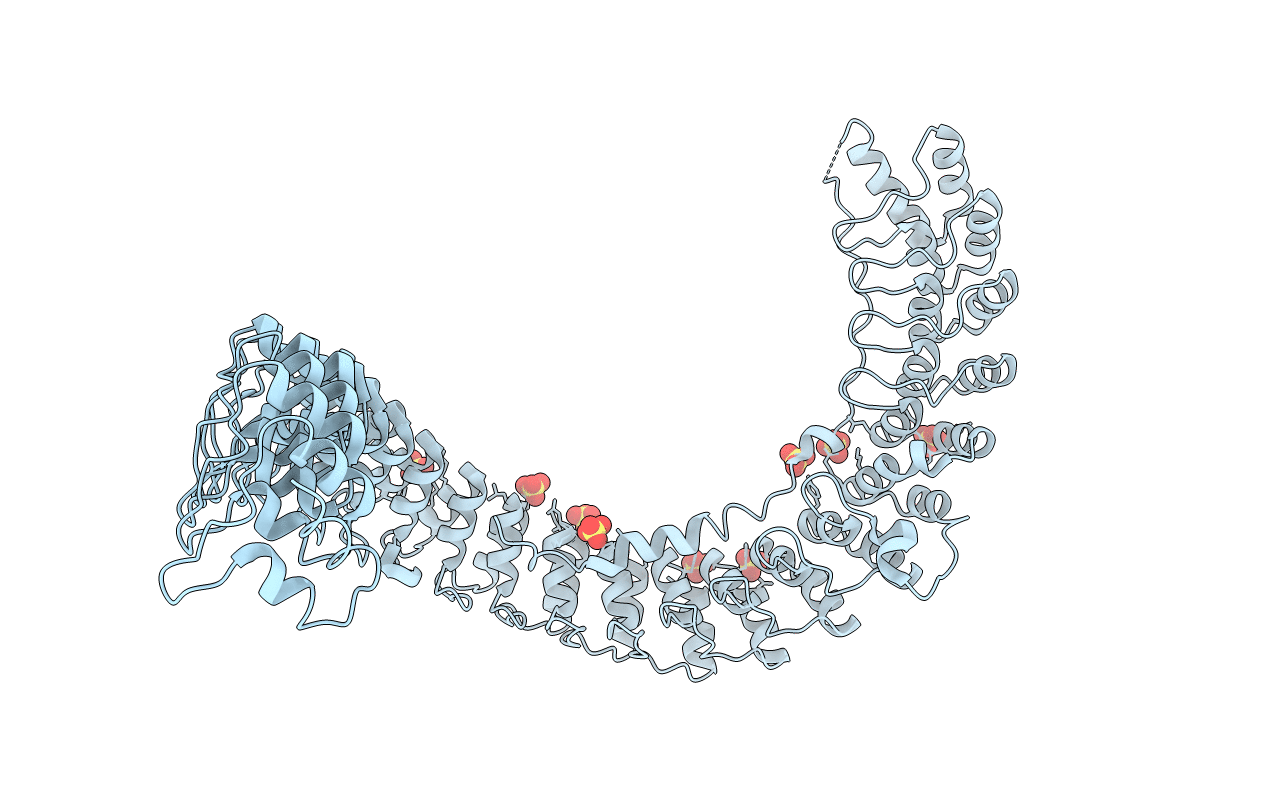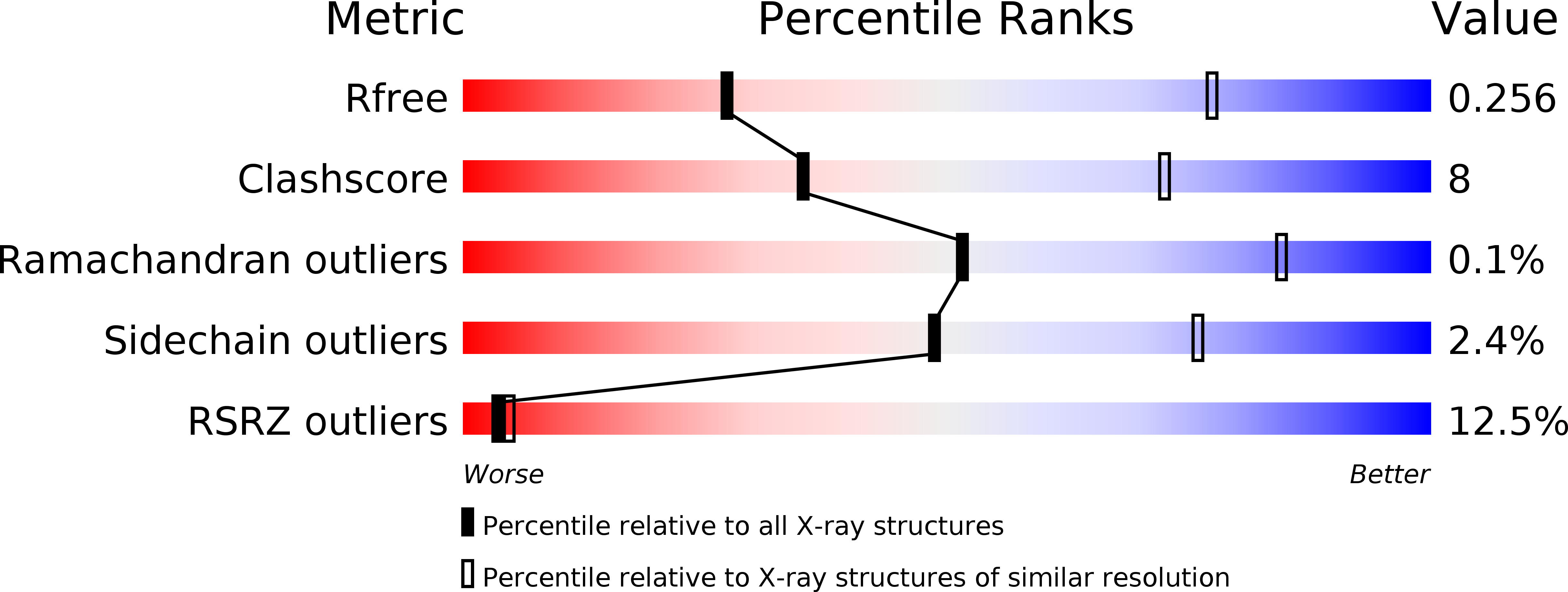
Deposition Date
2014-10-18
Release Date
2014-11-26
Last Version Date
2024-11-27
Entry Detail
PDB ID:
4RLV
Keywords:
Title:
Crystal Structure of AnkB 24 Ankyrin Repeats in Complex with AnkR Autoinhibition Segment
Biological Source:
Source Organism(s):
Mus musculus (Taxon ID: 10090)
Homo sapiens (Taxon ID: 9606)
Homo sapiens (Taxon ID: 9606)
Expression System(s):
Method Details:
Experimental Method:
Resolution:
3.49 Å
R-Value Free:
0.25
R-Value Work:
0.22
R-Value Observed:
0.22
Space Group:
H 3 2


